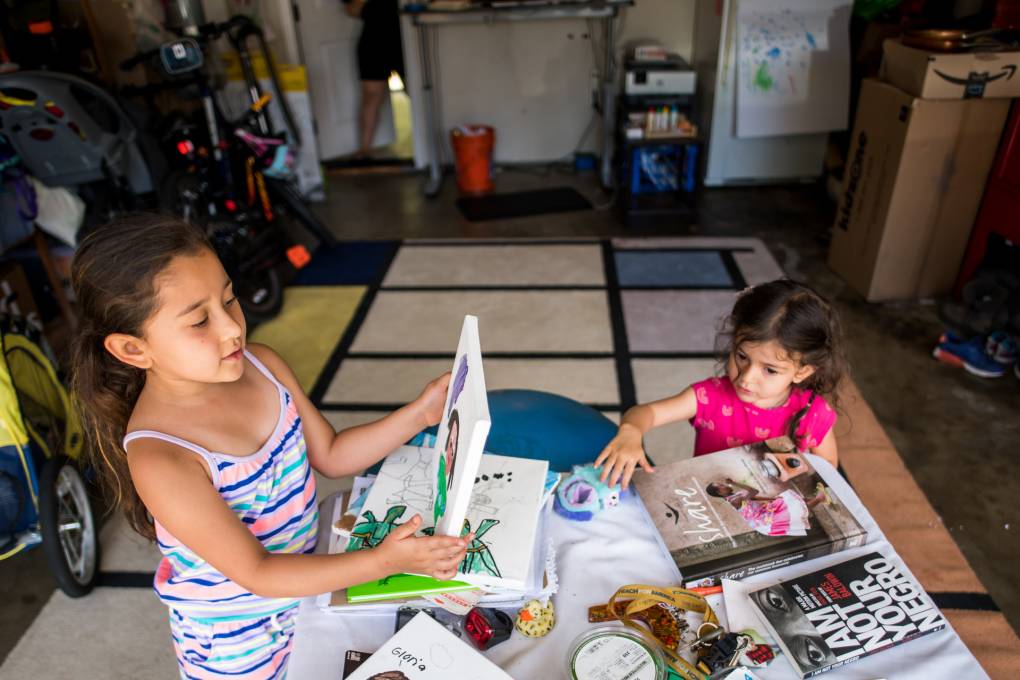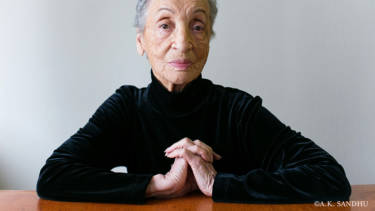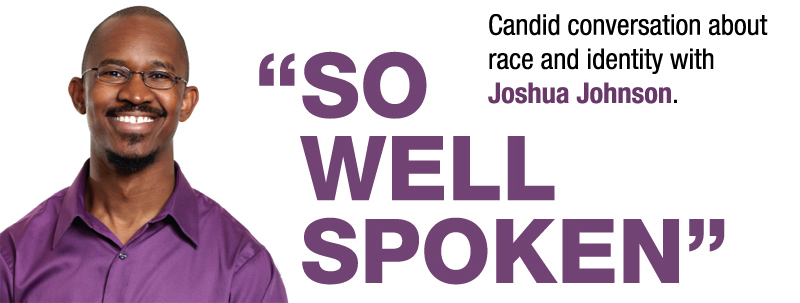How to Talk to Multiracial Kids About RacePosted in Articles, Family/Parenting, Media Archive, United States on 2020-06-14 23:50Z by Steven |
How to Talk to Multiracial Kids About Race
KQED News
San Francisco, California
2020-06-12
Lakshmi Sarah, Digital Producer
 Eva Lourdes, 7 Stella Marèsol, 3, at a table in their garage filled with art and books on June 11, 2020. (Beth LaBerge/KQED) |
June 12 is celebrated as “Loving Day,” a day commemorating Loving v. Virginia — the landmark 1967 Supreme Court case that declared laws against interracial marriage unconstitutional in the United States. With this in mind, we spoke with a few Bay Area families and experts on the importance of talking about race in multiracial families.
Sarah Baltazar-Pinheiro identifies as Filipino American and works in the education field. She lives in Walnut Creek with her husband, who is Afro-Brazilian, and their two daughters, ages 7 and 3-years-old.
“What is the right way to educate a 7-year-old who’s, like, half farts, half losing her teeth? And also 10% attention span?” she said.
At home, they are doing history lessons she calls “American heroes are Black women.” Baltazar-Pinheiro calls to her daughter to see if she remembers who they talked about the last few days — Rosa Parks, Ida B. Wells and Shirley Chisholm. Her daughter recounts the names, with a few small hints…
…“If you think your whiteness will protect your mixed kids from this country as it currently stands, you’re misguided,” she said. “We have words and we have language to talk about … race and class and gender — and gender fluidity and how we all want to live in this world. I just want to teach her the words that she needs so that she can always express herself.”…
…We also spoke with Mark and Kelley Kenney, who are both counselors teaching and working in academic settings. They co-authored the book Counseling Multiracial Families and led the writing of Competencies for Counseling the Multiracial Population.
“It’s kind of interesting to me that, on some level, things have shifted,” Kelley Kenney said, when thinking back on their years of studying the topic. “But, you know, we’re still dealing with the same inherent issue of racism and bias and lack of understanding. … I’m hoping that we’re moving forward in at least starting to dialogue more about it.”
Kelley Kenney said talking about race within family is not just a singular event. “It’s not just a one time conversation, but it’s very, very, very much a part of the whole family dynamic.”…
…“In cases where the relationship involves a white partner for whom this is perhaps their first interactions … dealing with issues of slavery, it is important to spend some time being honest with folks and really talking about what that all means in terms of how they want to proceed in a relationship and a family and all of those things.” — Mark Kenney, counselor…
Read the entire article here.



